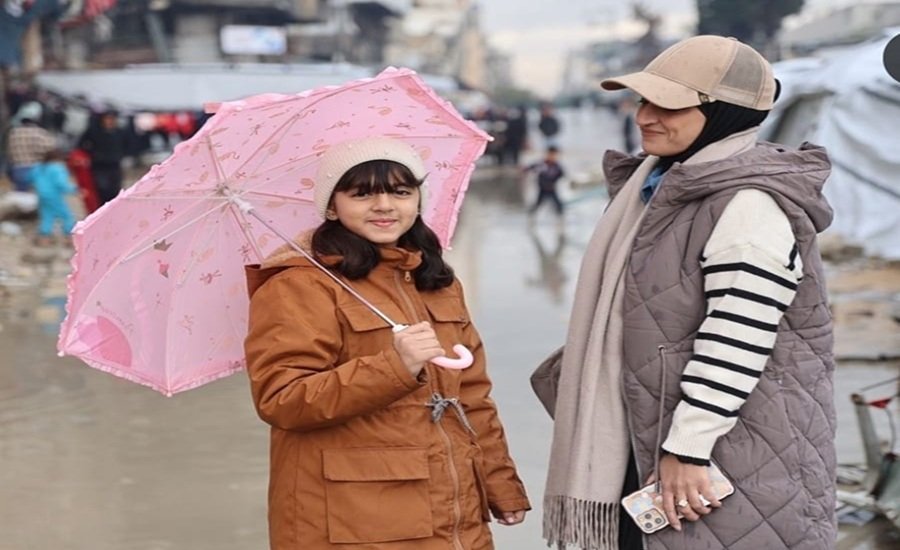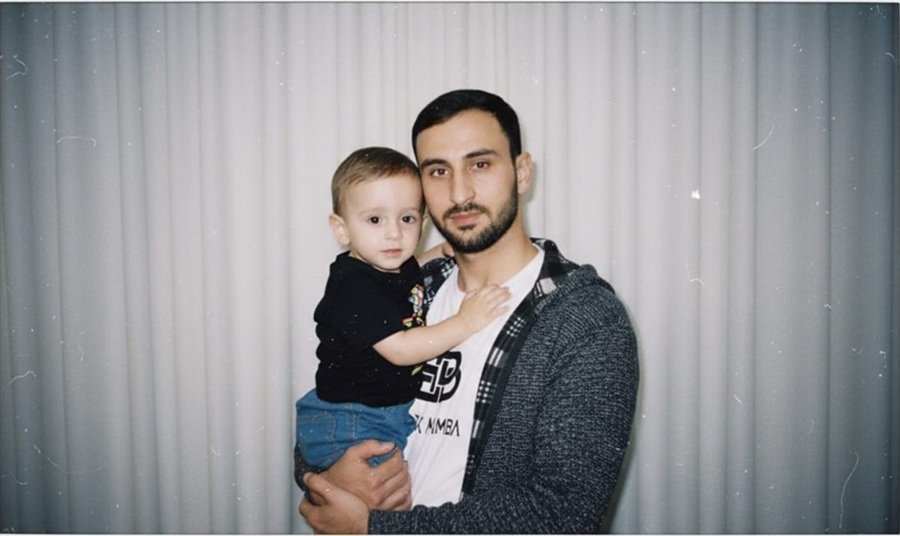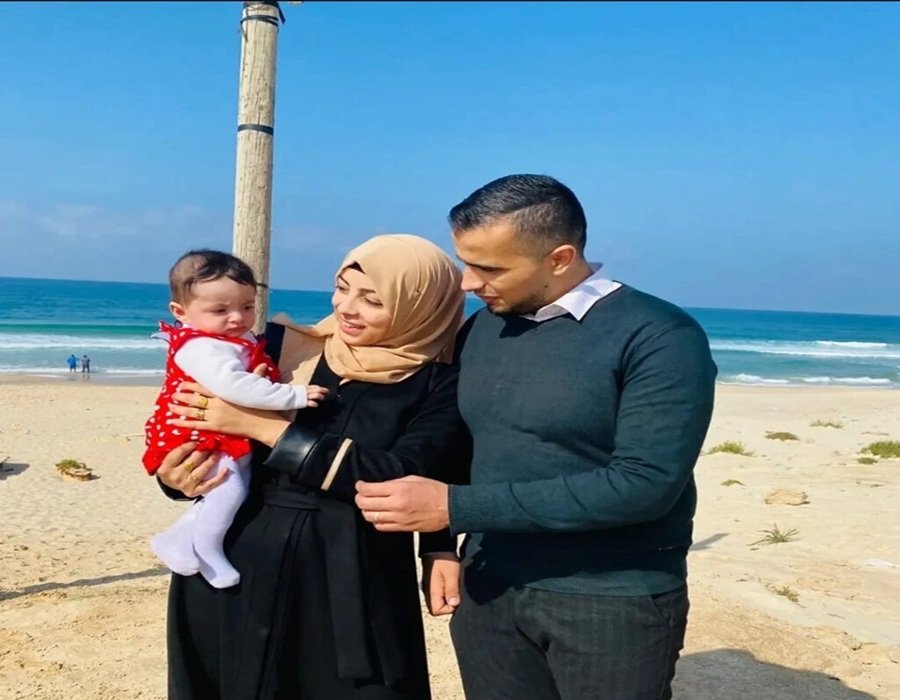Yasmin Abu Shammala
I became both mother and father the day my husband was killed.
I remember holding my son against my chest, trying to cool his burning fever. His small body shivered in my arms, and my tears fell freely as memories of Anas flooded back: how he would take over this simple task without hesitation, smoothing my worry with his calm presence. Now, I am alone in that role, navigating each small crisis by myself, with grief pressed deep in my chest. In my child’s warm eyes, I see the absent father, the silent echo of a life that should have been shared.
This is the daily reality for thousands of young widows in Gaza. According to the Government Media Office, 21,182 women lost their husbands to the Israeli genocide in Gaza, each one carrying the burden of survival and memory. Homes that once held laughter now echo with silence, and children grow up knowing their fathers only in memory, in photographs, and in stories told by mothers who embody both parental roles.
A Small Death Each Day
Like me, Hala Shahada wakes each morning with absence pressing on her chest. Her husband, journalist Khaled Hamad, was killed in 2014. “The shock of his martyrdom is something I still live with every day,” she tells me. “Each year, each memory, each anniversary brings it back. I have only learned to adapt, and even adaptation is bitter, a small death each day.”
His absence forced Hala to shoulder responsibilities she had never imagined alone. Her daughter was born after Khaled’s martyrdom, and each milestone, from birthdays to the first day of school, became a test of strength. Hala carries both roles: mother and father, guide and protector, comforter and disciplinarian. Each act of care echoes a presence that is no longer there.
I know this weight intimately. I must discipline my children when they err, yet simultaneously be the shoulder they lean on. Balancing firmness with tenderness suffocates, because I carry both roles in one heart. Each decision knots my chest, a constant reminder that I navigate a life meant for two, while grief sits silently between us.

Hala Shahada: “I have only learned to adapt, and even adaptation is bitter, a small death each day.”
Burden of Survival
Life’s weight rests heavily on widows’ shoulders. Even simple necessities; clean water, food, daily supplies, become strenuous under siege, scarcity, and fear for the future. Exhaustion and quiet tears mark many nights, as we long for a lost partner to share the burden.
Malak Zureid, widow of Al Jazeera correspondent Ismail Al-Ghoul, echoes this struggle. “I became both mother and father to my daughter, Zaina (3-year-old),” she shares. “I hold her for long stretches, keep her on my lap just as her father used to do, and guide her through her mischief. Each time I think, if only he were alive, he would have done this or that, and so I step in.”
It is not just responsibility; it is weaving together love and discipline, grief and resilience, so that life moves forward even as the heart clings to the past.
Keeping Fathers Present
Preserving memory is a lifeline for us and our children. We recount stories, share what little we have, and nurture the presence of our lost loved ones. I carefully explain to my children about their father, so they can feel him with them even in absence. My youngest, Malek, was born after Anas’ killing. I have no photographs to show him the father he never met, but I hold him tightly and explain who his father was. That absence pierces constantly, threading every story with grief and determination.
Hala adds, “I explain to my daughter about her father carefully, choosing moments when she is ready to understand. We talk about his love, his habits, and his kindness.”
Her words illuminate the delicate balance we all try to maintain: keeping memory alive, carrying grief, teaching our children, and finding ways to survive. In the shadow of absence and war, love and memory become acts of resilience.

An AI-generated image of Anas holding his youngest son, Malek, who never met his father. ‘I did not dare to create this myself, but my friend made it,’ says Yasmin. ‘I held Malek tightly yesterday, explaining who his father was without any images. That absence pierces constantly, threading every story I tell with grief and determination.’
Beyond Survival
Our experiences tell a story far larger than personal grief. Resilience is forged in scarcity, danger, and social pressure. Work is not merely economic; it is agency, resistance, and a means to shape our children’s future. Our labor is inseparable from grief and hope, survival intertwined with aspiration.
Hala reflects, “I work so my daughter can see her own strength. I work to prove that we can endure, that absence does not diminish who we are. Every achievement is a victory over grief and emptiness.”
Malak recalls the early days of loss. “The famine made survival nearly impossible… My daughter Zeina cried for food I could barely provide… I cried often, wishing Ismail were here to share this unbearable weight.”
Loss reshapes life’s rhythm. We, the widows of Gaza, navigate a world where every resource, every small act of care, becomes a test of endurance. From the moment I discovered I was pregnant after Anas’ killing, I understood I would have to carry both roles: mother and father. Even simple decisions, like choosing a school, feel monumental, a reminder of the gap left by a loved one’s absence.
Hala emphasizes, “My work is my resistance. Through every task, every story I write, every responsibility I carry, I channel my anger, my grief, and my strength. I refuse to let the emptiness of loss paralyze me.”
Fighting for Normal Life
Even in grief, we strive to maintain a sense of normalcy for our children. Every meal prepared, every budget stretched, every school assignment overseen becomes an act of courage, a quiet rebellion against the harshness around us.
Hala says, “Under siege, even the simplest necessities like clean water and nutritious food become rare treasures. I pour twice the effort into my work just to make sure my daughter has what she needs. Survival is more than merely living; it is about preserving dignity in the face of scarcity and danger.”
Malak mirrors this resilience: “Balancing my child’s needs with daily survival is exhausting. I work in shifts, in shelters, and come home physically drained, but I push on. It is not just about earning money; it is about showing her that we can survive, endure, and live with dignity even amid absence and hardship.”

Malak Zureid: “The famine made survival nearly impossible… I cried often, wishing Ismail were here to share this unbearable weight.”
“I Want Her to Live a Life I Could Never Guarantee”
Even amid danger and deprivation, hope endures. We yearn for our children to have what may seem simple but carries profound meaning: safety, dignity, and opportunity.
Hala shares, “I want my daughter to grow up without fear, without hunger, without the shadow of war over her childhood. I want her to live a life I could never guarantee when Khaled was alive. To me, that is everything: security, love, education, and the chance to grow strong and proud.”
Malak dreams of a home where peace and joy shape daily life. “I hope for a safe home, a car to take her places, a quality education, and a life most children take for granted. Even the smallest freedoms and comforts feel like miracles here in Gaza.”
After enduring deprivation and loss, our dreams become both shields and compasses; fuels for resilience and a testament to the strength we summon to ensure our children live with safety, dignity, and hope, even in the shadow of war.
Gaza’s widows illuminate the intersections of grief, motherhood, survival, and resistance. They carry the weight of absent fathers, the responsibility for nurturing children in extreme conditions, and the necessity of work for both survival and identity. Each day, they navigate scarcity, danger, and social pressures, yet they persist, embodying resilience and courage.
Widows in Gaza are raising a generation in the shadow of absence. The world may not see them, but their children carry both grief and resilience. The question is not whether they will endure; they already do. The question is whether anyone will stand with them. — QNN

